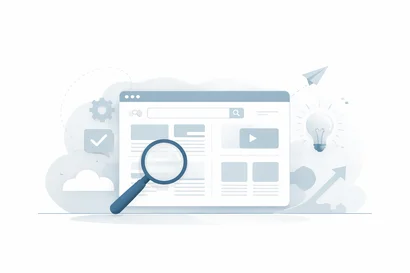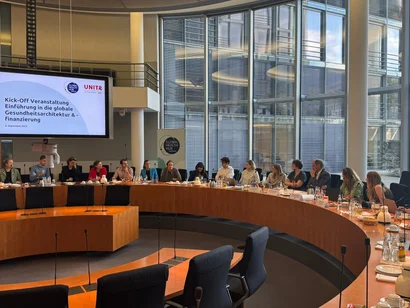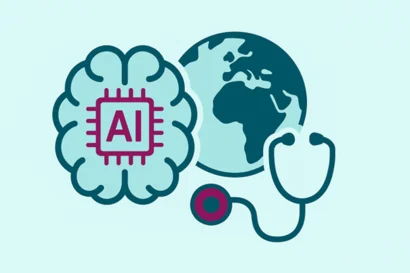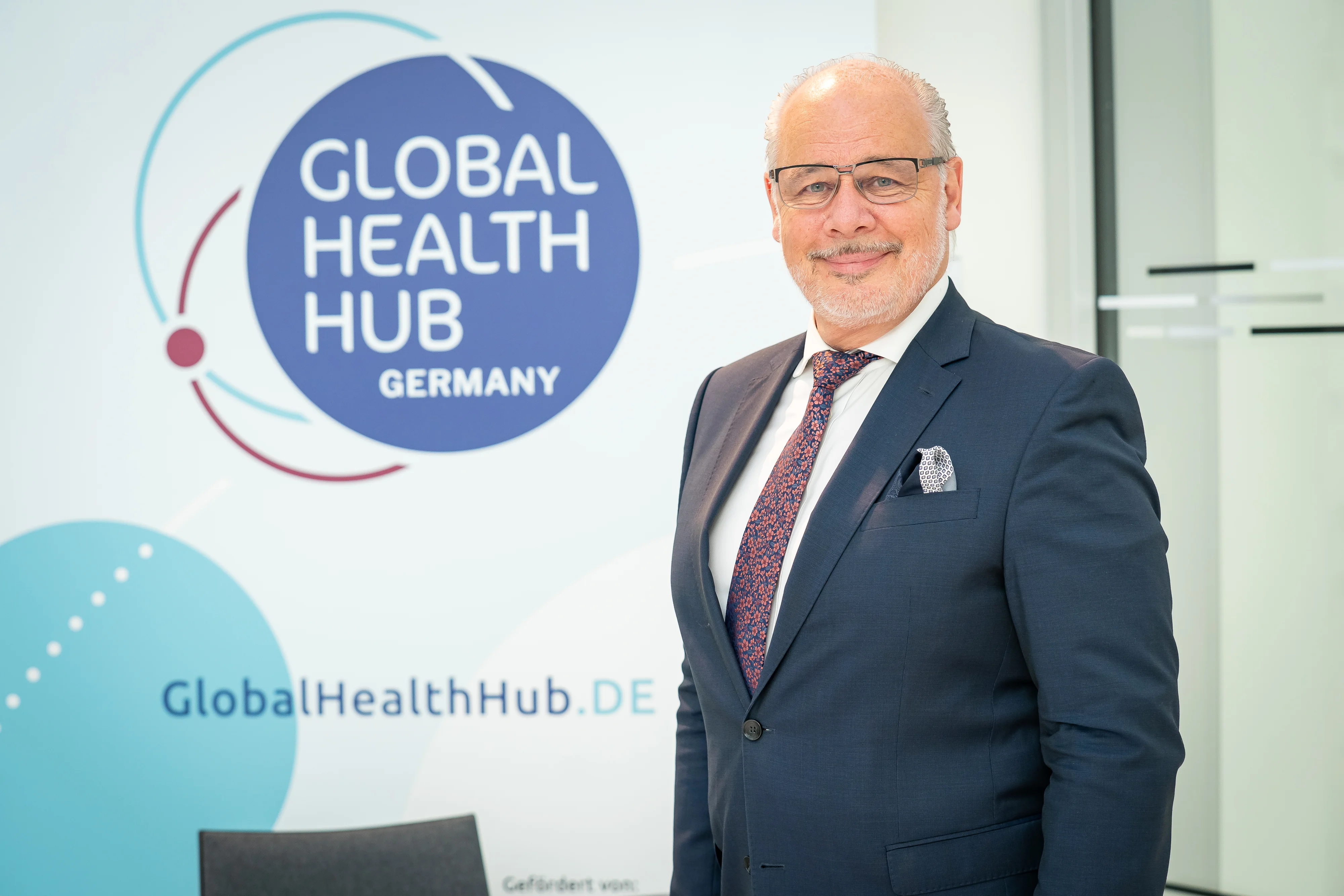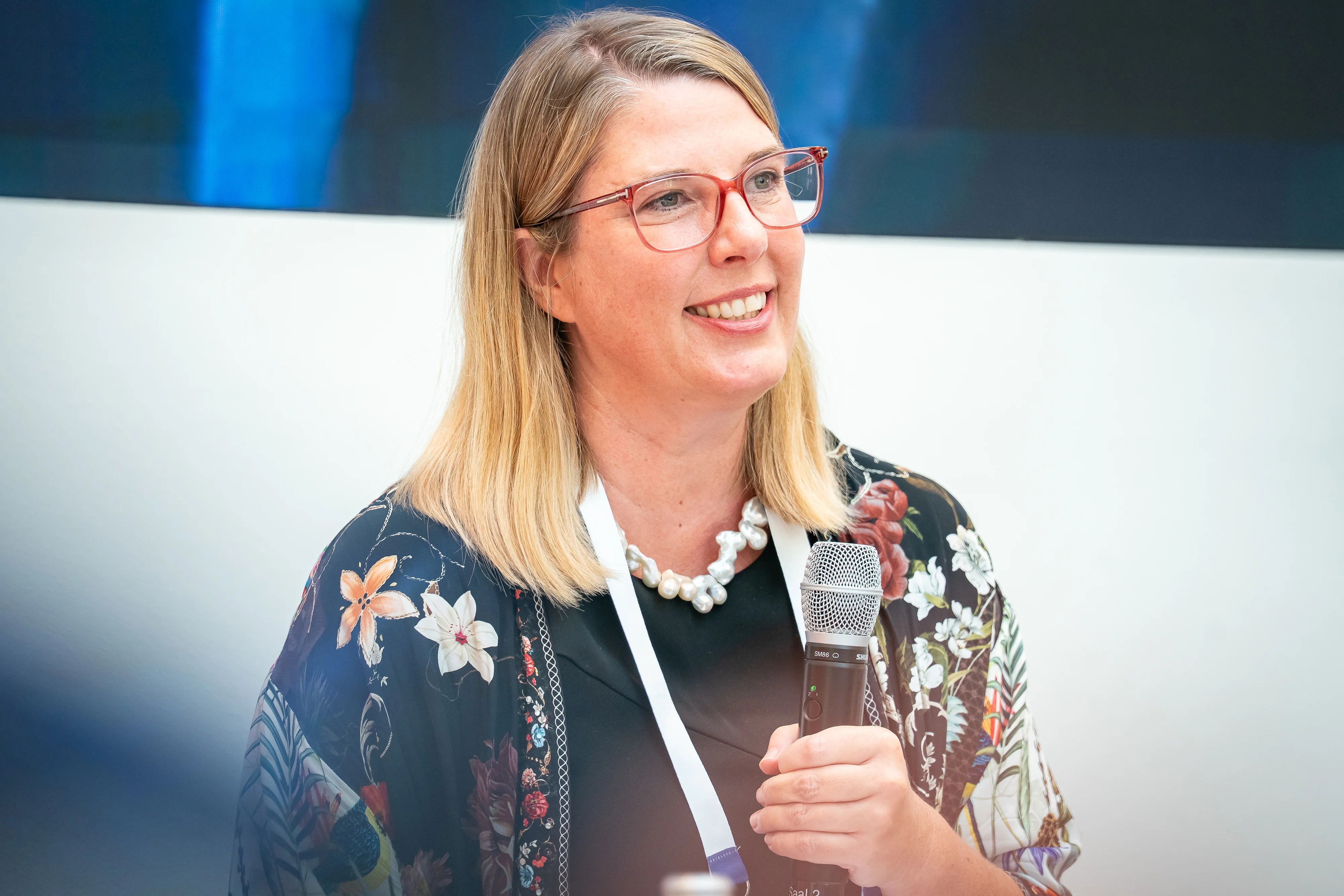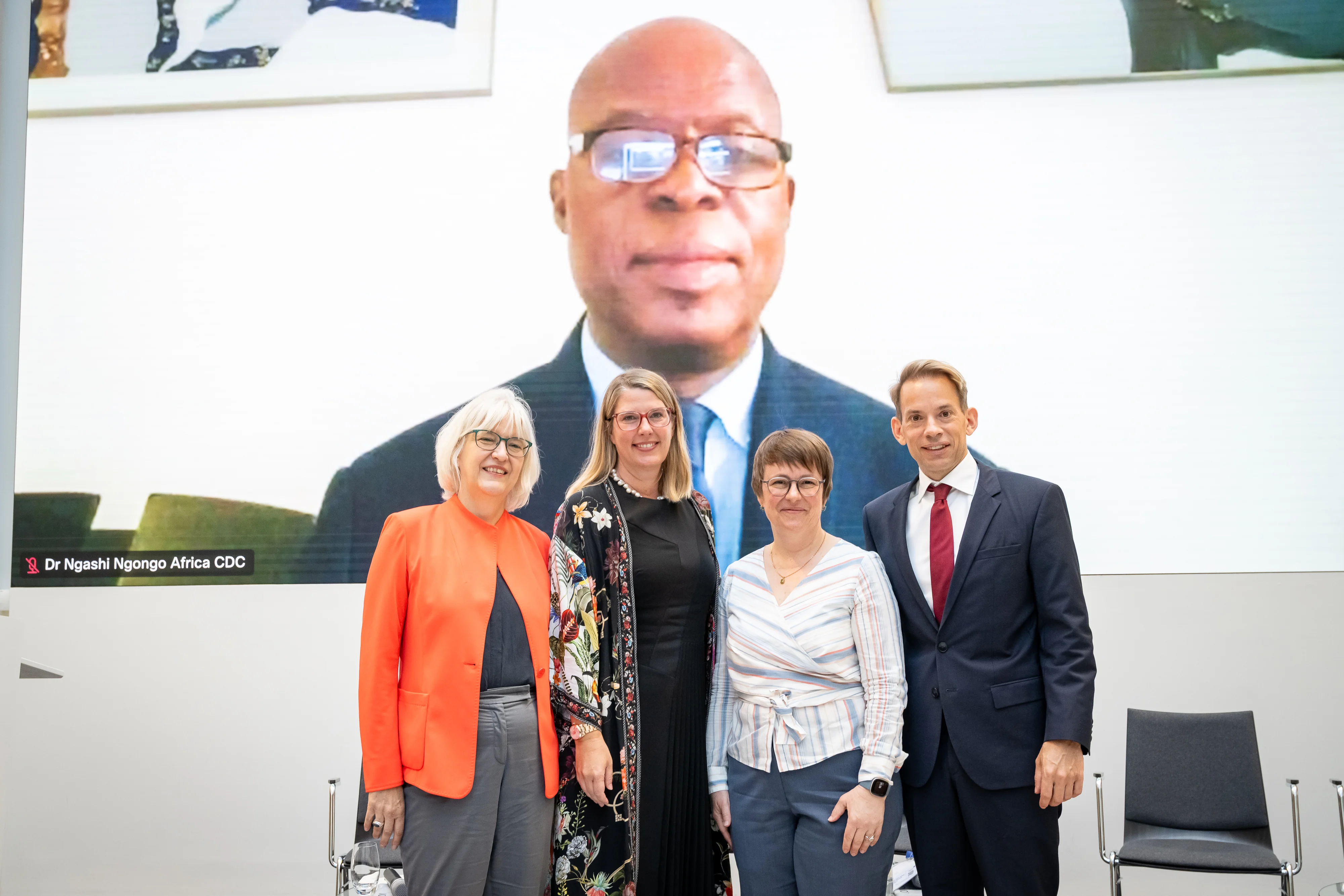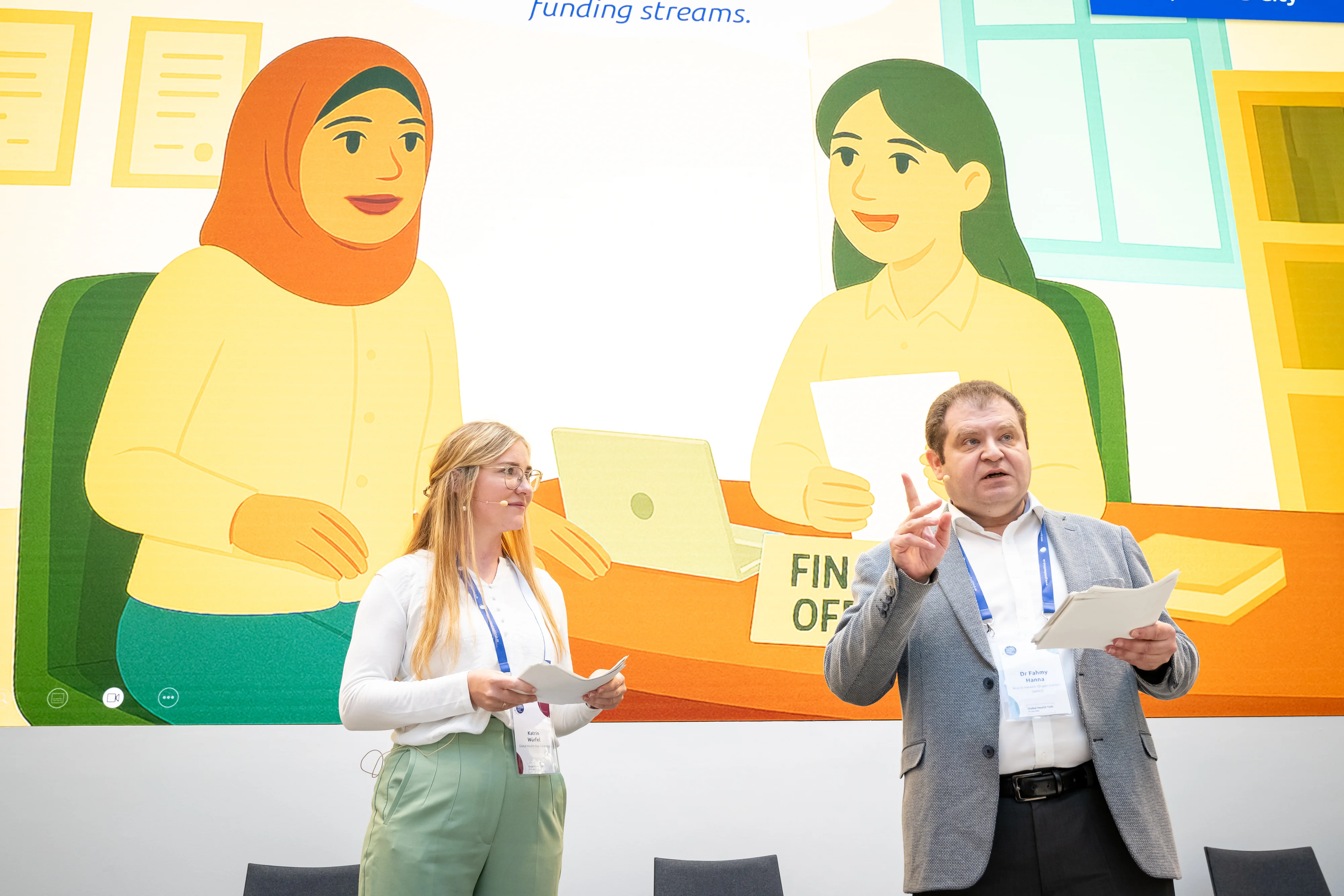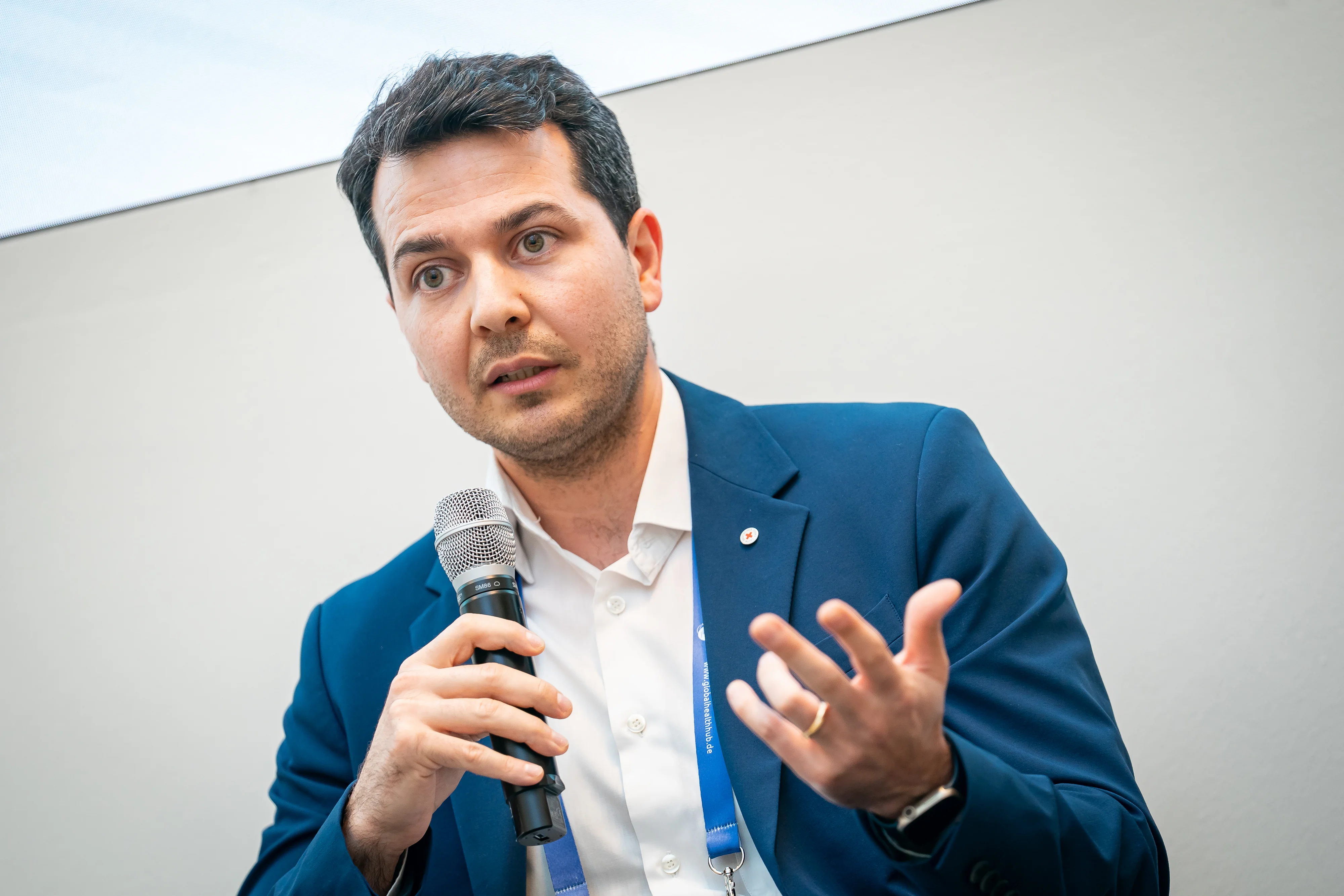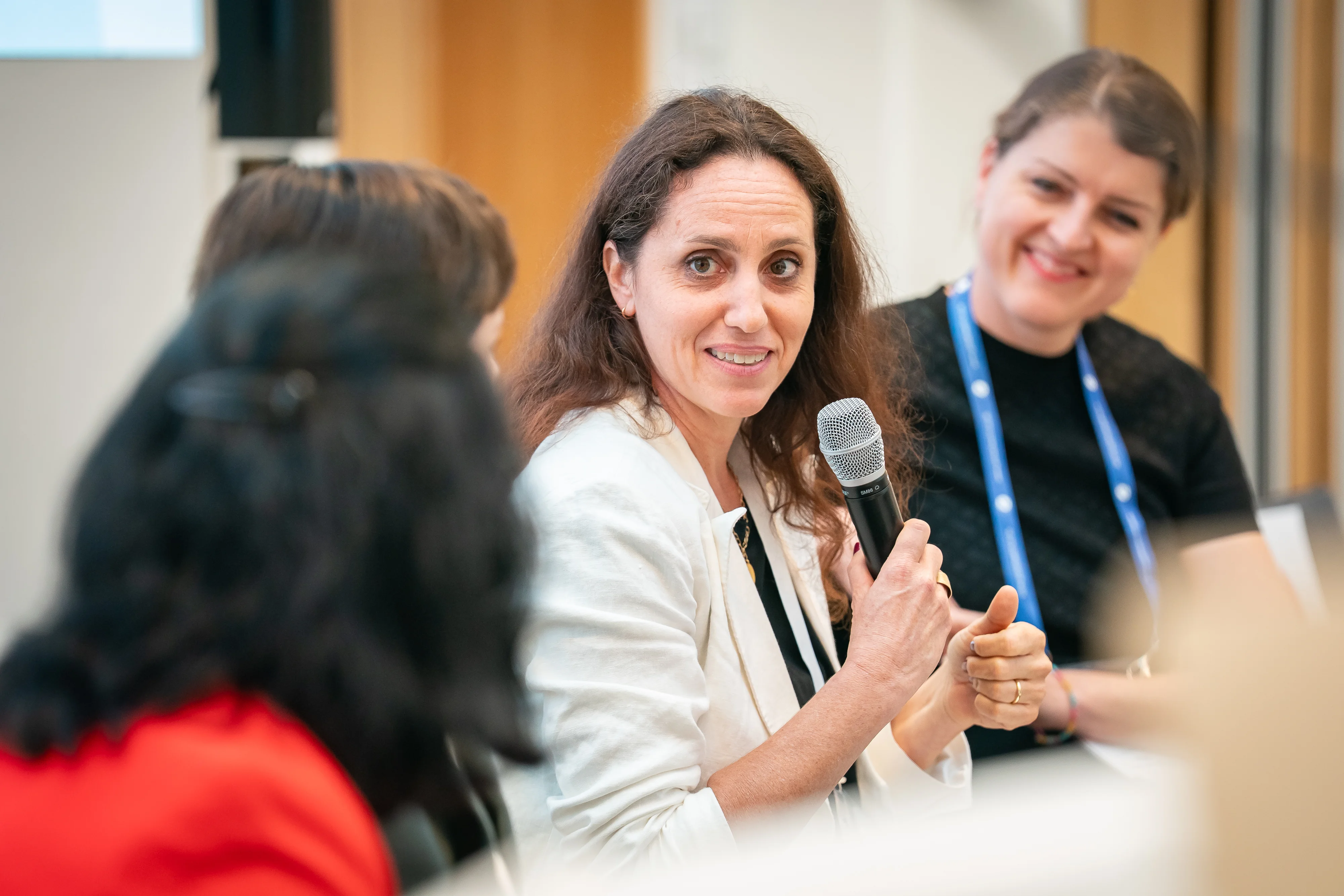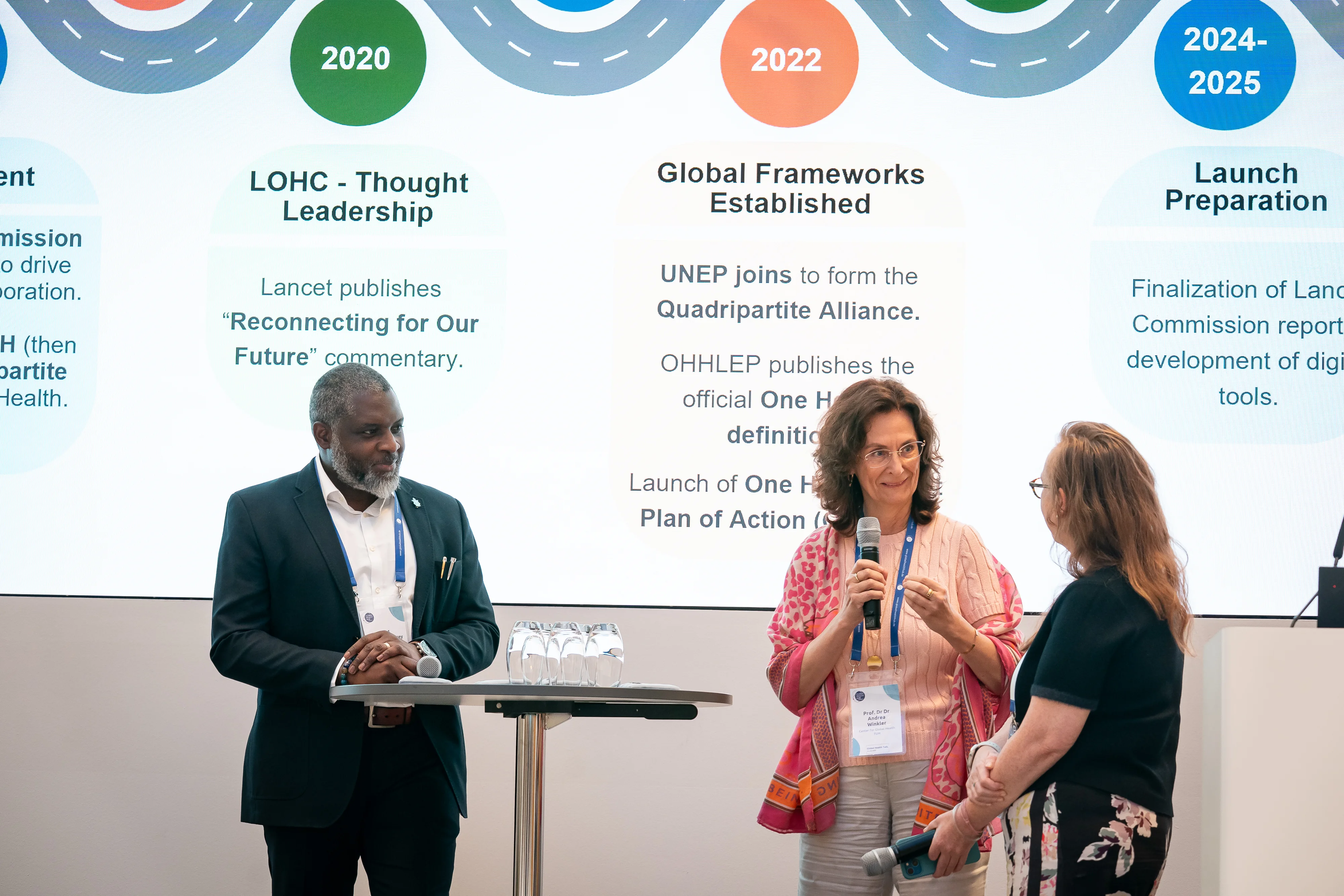The Global Health Talk 2025 – Opportunities for Global Health in times of crisis?
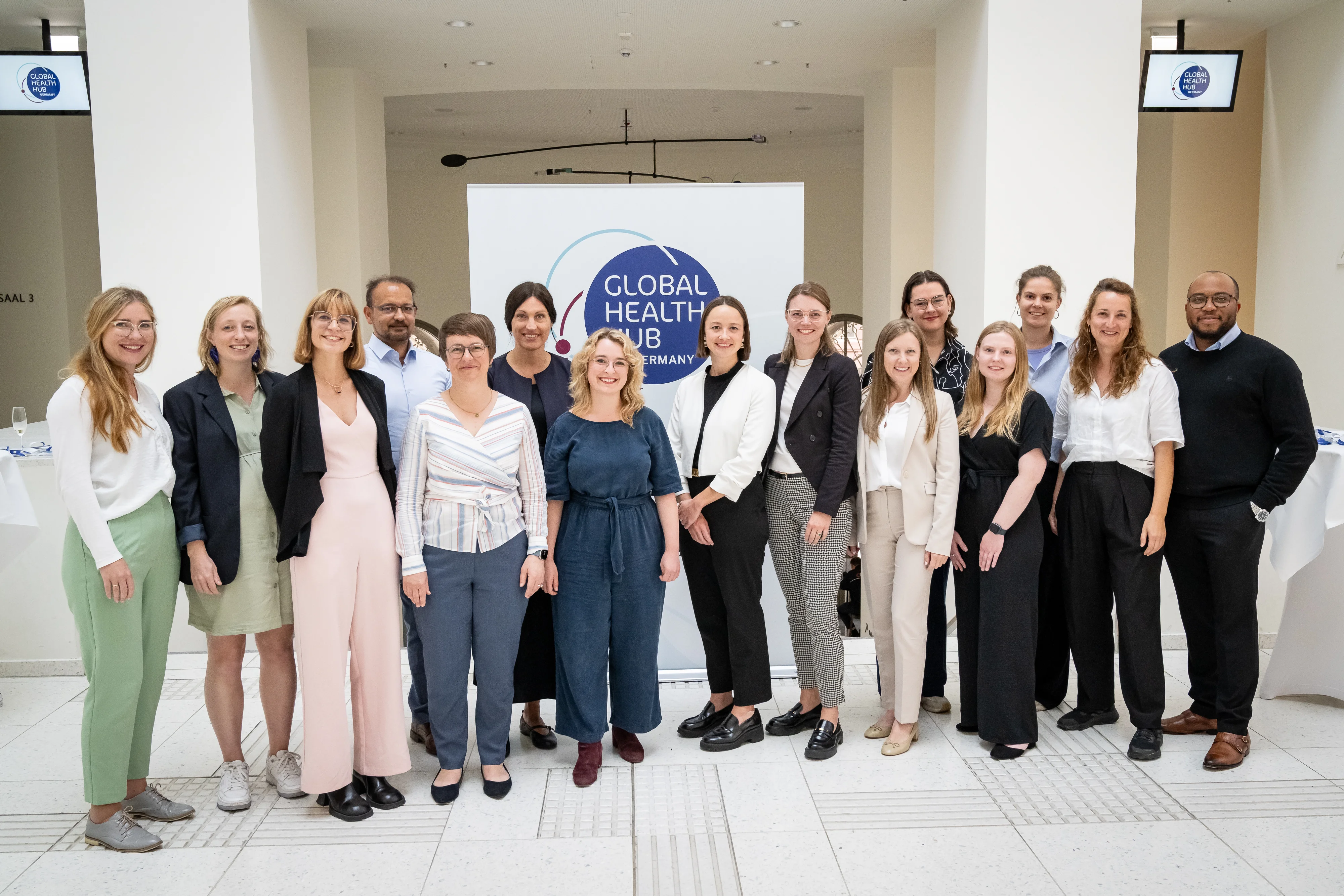
We were delighted to welcome so many of you for our Global Health Talk (GHT) last week! Couldn’t join us? No worries — we prepared a concise summary of the GHT sessions for you!
The team of the Global Health Hub Germany was delighted to see so many of you at this year’s Global Health Talk on July 10. Times of political upheaval and crises do not leave global health untouched. That is why this year’s Global Health Talk focused in particular on the changing global health architecture. Furthermore, our community topic 2024/2025 focused on global health in in crisis settings and we also discussed the link between noncommunicable disease (NCD) and mental health with regard to the upcoming UN High-Level Meeting. To close the day, we had the pleasure of presenting a pre-launch of the Lancet Commission’s One Health report.
Speech of the Parliamentary State Secretary of the Federal Ministry of Health Dr Georg Kippels
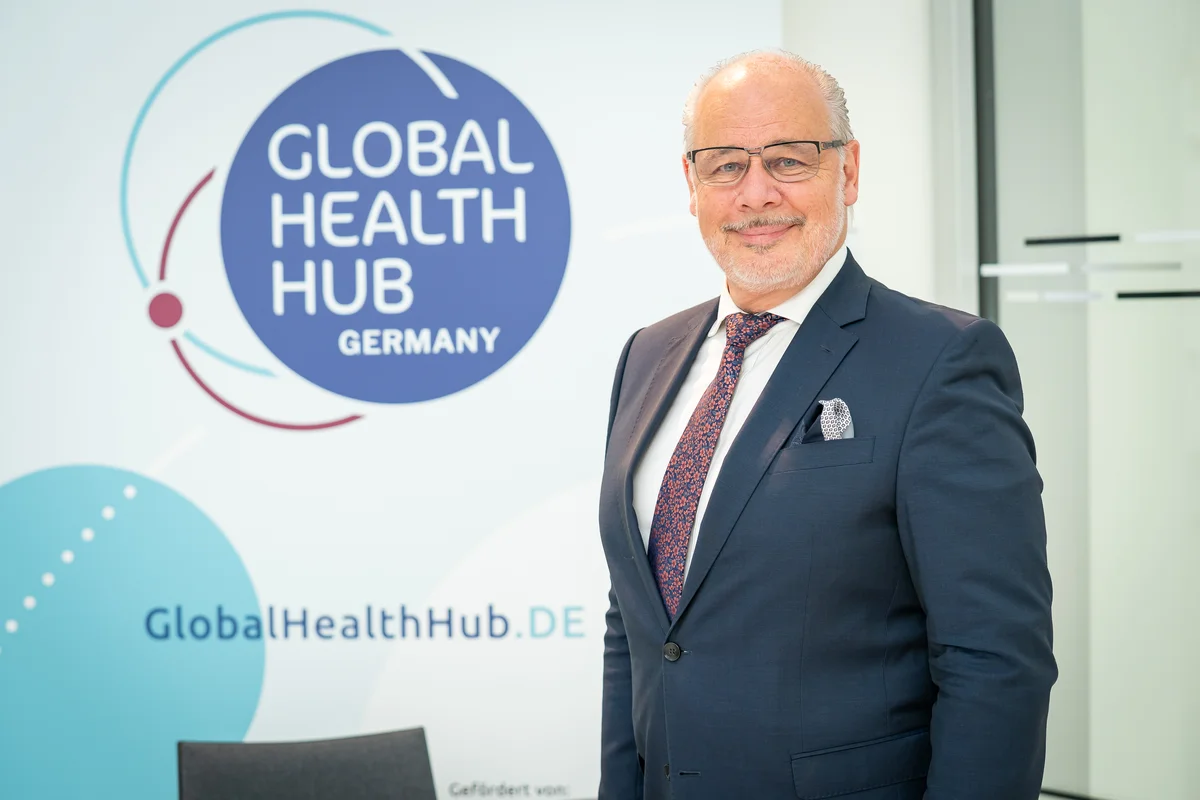
“Yes, these are indeed challenging times for global health. But let us take up the challenges, join forces and truly collaborate to shape the future of global health.”
Parliamentary State Secretary of the Federal Ministry of Health Dr Georg Kippels
The Global Health Talk was kicked off with an inspiring speech by Parliamentary State Secretary of the Federal Ministry of Health Dr Georg Kippels. He emphasized the challenging and transformative times we are facing in global health, raising key questions about its future financing, governance, and architecture – and the role of multilateralism overall. For him, the Global Health Talk is timely: it brings together global health experts from diverse stakeholder groups to discuss solutions to the burning challenges of our time.
Dr Kippels underlined that the Federal Ministry of Health is “glad to support this important effort” and emphasized his close connection to the Hub as a former steering committee member. In times of crisis Dr Kippels also sees opportunities – to “rethink and transform the fragmented global health architecture”. In his view the World Health Organization should play a strong role in this, and Germany will continue to support WHO on this journey.
To conclude, Dr Kippels highlighted the ongoing survey as part of the mid-term review of the BMG global health strategy for non-state actors.
- You are welcome to contribute here until July 17: Wiederaufnahme des Review-Prozesses: Abfrage zur Umsetzung der Strategie der Bundesregierung zur globalen Gesundheit
A New Era in Global Health: Shifting Powers, Shared Futures
The political withdrawal of key actors – most notably the United States from several global health institutions – combined with tightening budgets and growing geopolitical fragmentation, is reshaping multilateral cooperation as we know it. These disruptions coincide with significant changes within Germany itself: a new government, shifting political majorities, and increasing pressure on public finances are forcing a fundamental rethinking of Germany’s global health engagement.
Against this backdrop our panellists discussed where we stand in terms of restructuring the global health architecture and how these changes affect their institutions. Who are the actors of the future – and what role should Germany play in supporting a fairer, more resilient global health architecture?
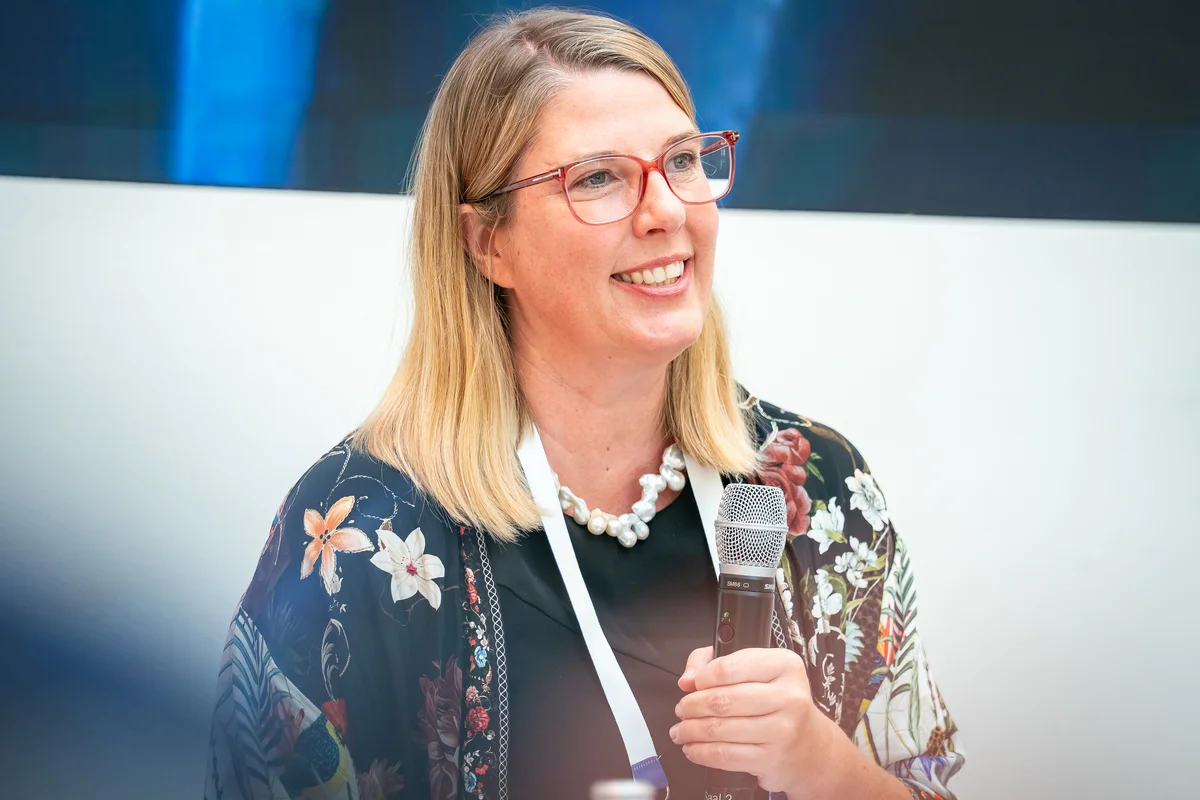
“We cannot fight fragmentation with fragmentation.”
Dr Catharina Böhme, Senior Advisor, World Health Organization
Dr Böhme informed that the WHO sees disruptions of the health infrastructure in over 70 countries. Change is necessary, she said — the system is too fragmented. But, actors need to work collaboratively and integrated. She warned that change is coming too fast for many countries to mobilize domestic funding, a much-discussed solution.
Angela Bähr, Chief Program Officer at Deutsche Stiftung Weltbevölkerung and Deputy Chair at VENRO emphasized the devastating effects of the U.S. funding cuts. The United States contributing around 40 percent of the global budget of international humanitarian aid. She warned that the last mile will be the first one affected.
Paul Zubeil, Deputy Director-General for European and International Health Policy at the Federal Ministry of Health took a hopeful tone: “Reform is never about disruption, it is about purpose.” Germany, he said, will remain a reliable partner in global health. But for him, efficiency is key — donors, implementers, and civil society must all be part of the equation.
Dr Ngashi Ngongo, Principal advisor to the Director General and Continental Incident Manager for Mpox at Africa CDC spoke of Africa’s health challenges and the role of regional solutions. The Africa CDC is working on a strategy for health financing. He emphasized the importance of regional organizations and blended finance with the challenge of limited domestic resources.
Picture below: Above Dr Ngashi Ngongo, below from the left Angela Bähr, Dr Catharina Böhme, Corinna Heineke, Paul Zubeil. ©Thomas Ecke.
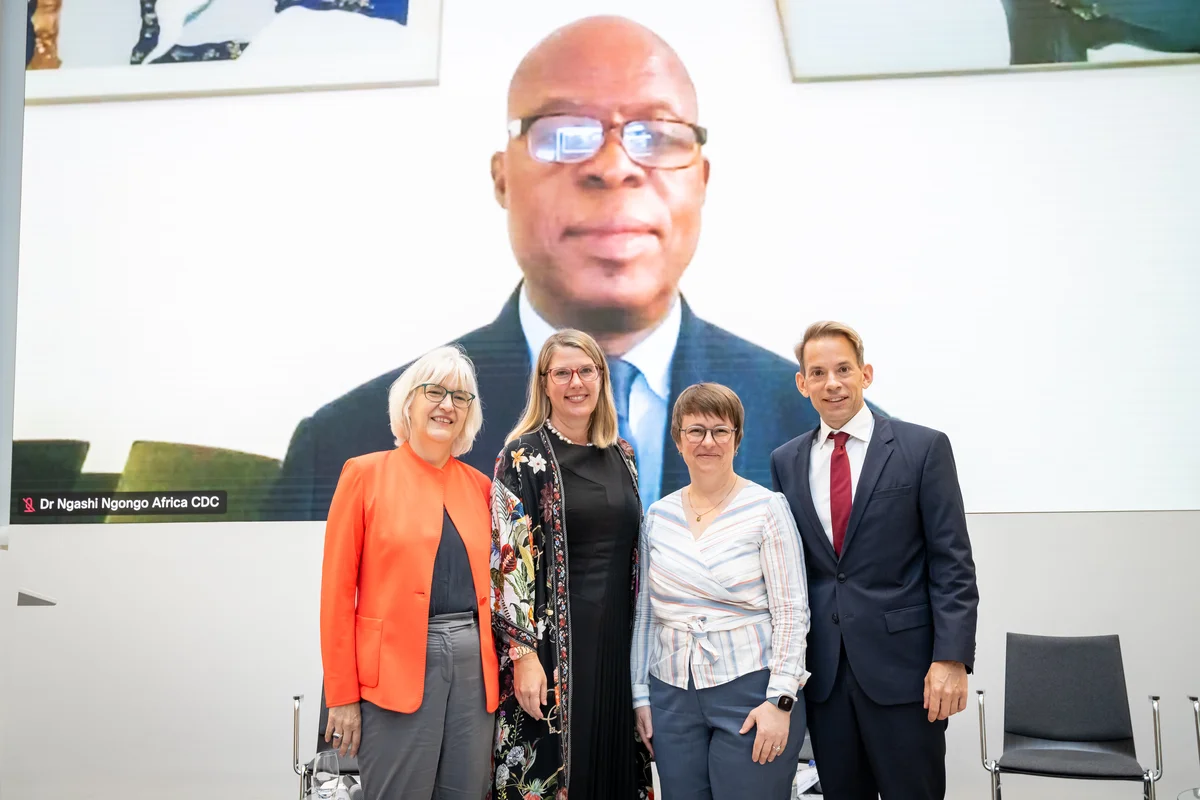
In a following debate moderated by Dr Branwen J. Hennig from the Global Health Policy Lab Virchow Foundation & Charité Center for Global Health, Dr. Alina Brandes and Alicia Longthorne from the Federal Ministry of Health and Deepali Sood from United Nations Population Fund (UNFPA) WomenXCollective volunteers from the audience discussed the topic from two controversial points of views:
- “The changes in the Global Health architecture we are witnessing are a much-needed disruption — a long overdue reckoning with an overpriced and outdated global health architecture.”
vs.
- “The changes in the Global Health architecture we are witnessing are an unmitigated disaster — everything about them is catastrophic, and the short- and long-term consequences will be impossible to absorb.”
The debate was staged and purposely exaggerated. The positions did not reflect the persons’ and organizations’ points of view.
Both sides argued passionately. One group insisted: “In for the phoenix to rise, something had to burn.” The other warned: if people are competing for funding, the voices of those who are the most vulnerable, are left behind.
Global Health in Conflict Settings: Translating Crisis Experiences into Action
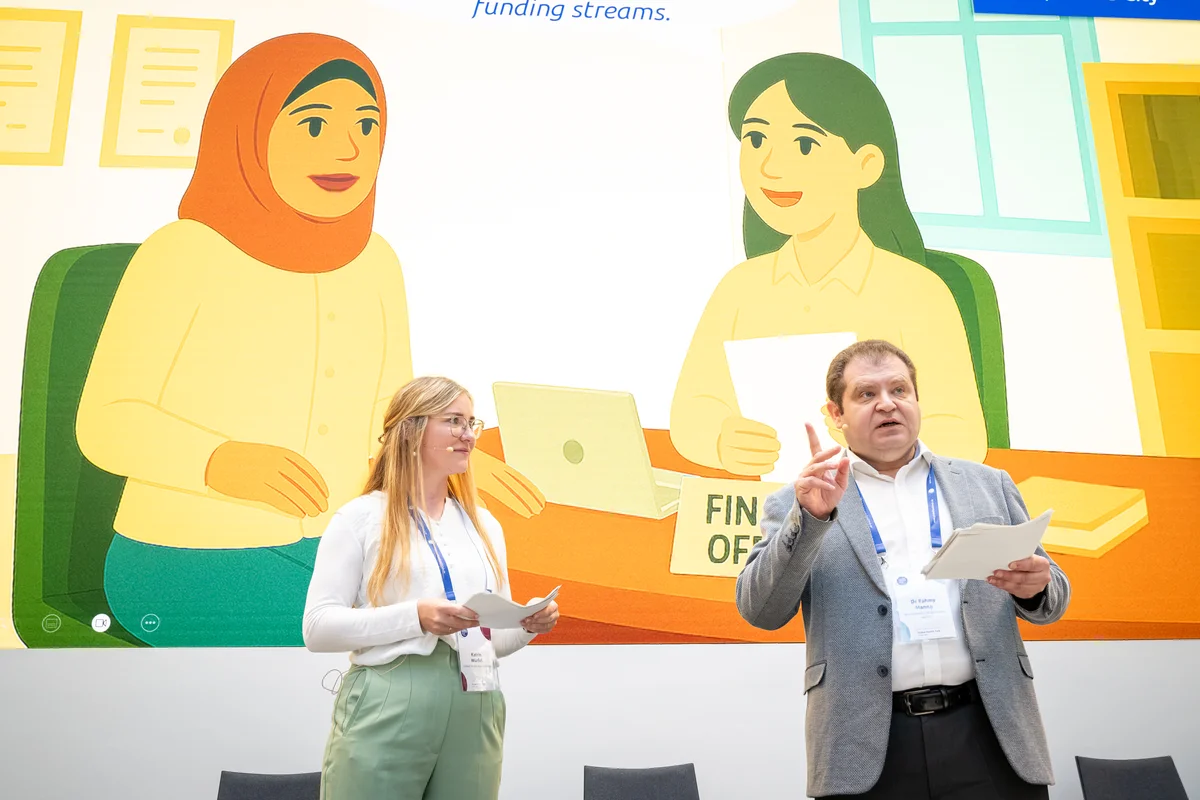
In an interactive simulation exercise, developed by the Hub in close collaboration with the Department for Mental Health and Non-Communicable Diseases, World Health Organization Geneva (WHO) our participants stepped into the role of a Regional Health Committee in a fictional conflict-affected region Zavara. They navigated complex trade-offs, limited resources, and high-stakes decisions based directly on real-world best practices and the Policy Brief’s core insights.
The exercise showed how difficult it is to operate on the ground during a crisis and asked the question if there even can be right choices. The participants had to decide how to care for pregnant women with serious complications in crisis, the rise of child mortality, an outbreak of the fictional disease Catflu and the rise of mental health problems and non-communicable diseases.
The session concluded with a lively panel discussion moderated by Dr Fahmy Hanna (WHO), joined by Dr Franziska Laporte Uribe (Hub Working Group), Dr Hanna Kaade (German Red Cross), and Thorsten Schroer (CADUS).
Thorsten Schroer highlighted the urgent need for fair and equitable working conditions for national health workers, underscoring the importance of mutual respect between international health workers and persons in conflict settings. Dr. Hannah Kaade emphasized that mental health remains a crucial concern for staff working in the field, while Dr. Franziska Laporte Uribe called for stronger coordination between ministries to improve crisis response efforts.
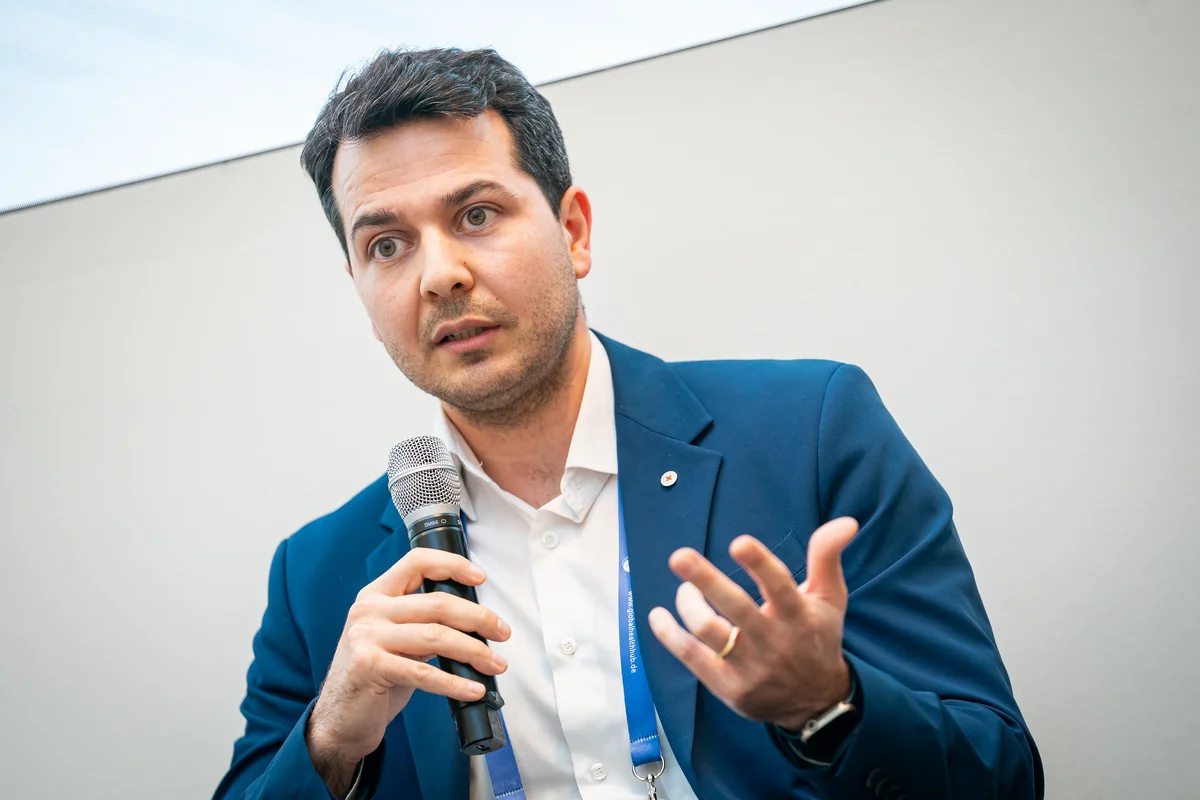
“If we are not supporting the people in the field, the health system will collapse”
Dr Hanna Kaade
Shaping the Future of NCDs: Integrating Mental Health into Global Strategies for 2025 and Beyond
Continuing the way to the High-Level Meeting on noncommunicable disease in September, we included an insightful debate on NCDs and Mental Health to this year’s Global Health Talk.
Dr Sarbani Chakraborty, Technical Advisor for Health Financing at the Union for International Cancer Control (UICC) and Senior Researcher at the Technical University of Munich moderated our diverse panel featuring Dr Caroline Cohrdes, Senior Researcher and Deputy Head of the Mental Health Research Unit at the Department of Epidemiology and Health Monitoring at the Robert Koch Institute (RKI), Gabriela Nasser, Vice President, Instituto Melhores Dias, PhD Candidate, Albert-Ludwigs Universität Freiburg and Community Lead of our NCD Community and Vanessa Pott, Head of Global Patient Engagement at Boehringer Ingelheim.
The discussion focused especially on the role of NCDs and Mental Health for Youth, offering also a “hot seat” for youth from the audience to express their opinions. Gabriella Nasser pointed out the share of youth in Brazilian society is high and that suicide is a major problem in this population. These conditions do not come isolated but in combination with alcohol abuse and high levels of violence. Also, the strong link between Mental Health and NCDs is overlooked. Vanessa Pott emphasized the importance of integrating patient’s perspectives into drug development and Caroline Cohrdes warned of the dangers of social media use for the Mental Health of Adolescents. Also, a voice from youth from the audience came back to this issue, pointing out that Social Media can offer at the same time great information on Mental Health and also misinformation.
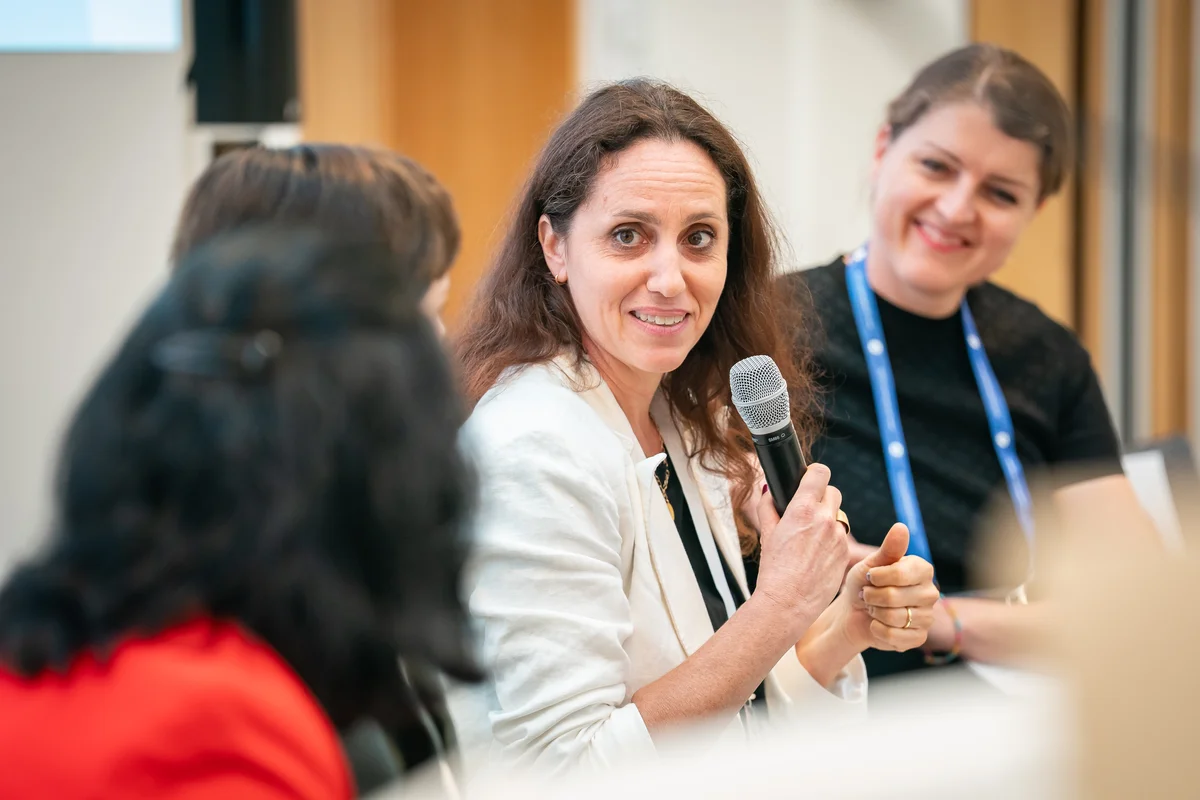
“Multiple Perspectives of engagement on One Health: A Pre-Launch of the Lancet Commission One Health report”
The warm-up question at the pre-launch of the Lancet Commission One Health Report made it clear: for most of our Hub Communities, the One Health approach is highly relevant to their work.
Dr Tania H. Rödiger-Vorwerk, (Deputy Director General Global Health, Resilience, Equality of Opportunity of the Ministry of Economic Cooperation and Development) set the scene by highlighting Germany’s long-term commitment as a reliable partner in global health, even if global efforts towards achieving the SDGs are currently at risk. She reminded us that “every crisis bears opportunities- to re-consider reforming the global health ecosystem and making global health fit for the future, using a One Health approach to seize win-win opportunities.
Dr Fairuz Larfaoui, (animal health officer, Food and Agriculture Organization of the United Nations (FAO),) on behalf of the Quadripartite presented selected aspects of their collaborative work on the global One Health agenda. The four organizations have accompanied high level processes to advocate for One Health, for example at the UN General Assembly or at the G7. At the same time, they assist countries on anchoring the One Health approach by compiling an inventory of practical tools through an ongoing collection of learnings on One Health implementation from local, regional to global levels.
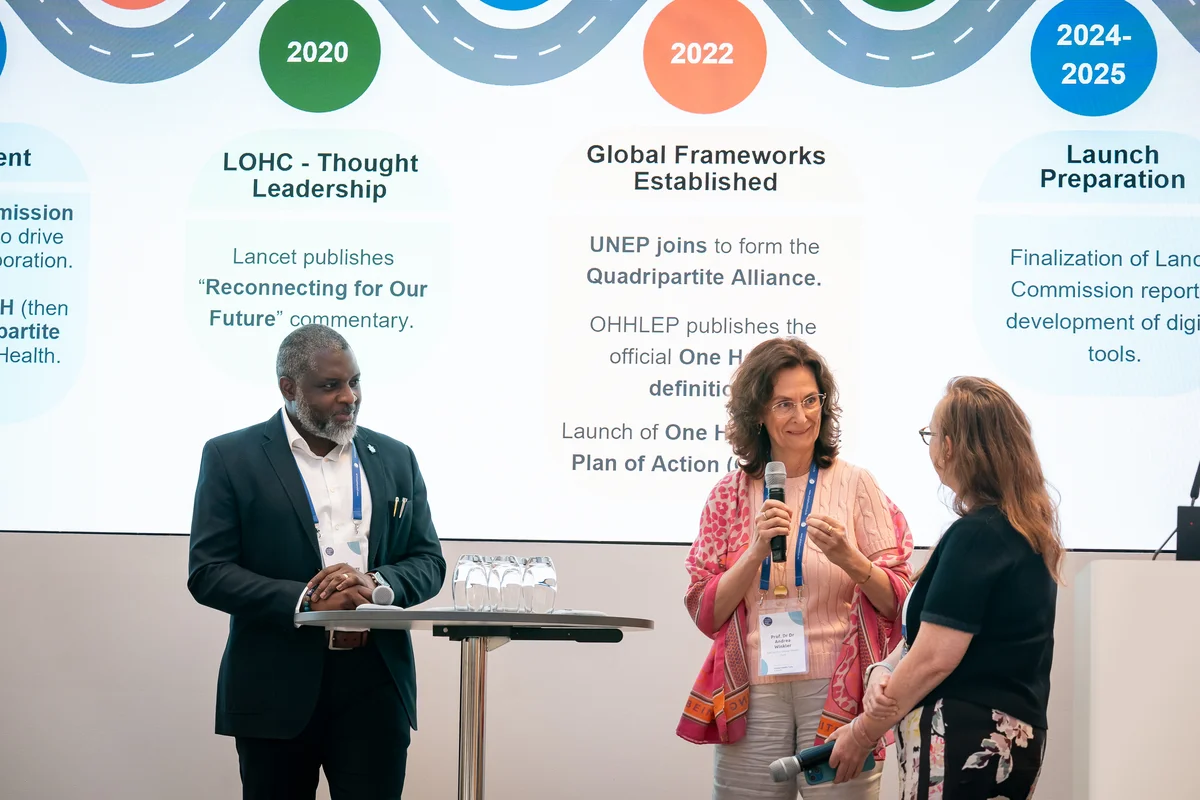
The co-chairs of the Lancet Commission on One Health, Prof. Andrea Winkler and Prof. John Amuasi, shared insights on the history and work of the Commission. “To execute the One Health approach you need avenues” said Amuasi. The Commission’s report exemplifies the current momentum for the One Health approach, It highlights how One Health can:
- act as an accelerator, now anchored in the WHO Pandemic Treaty to better address the interconnectedness of pandemic threats;
- help shift the focus from response to prevention;
- encourage a broader understanding of how human, animal, and environmental health are linked and embedded into the socioeconomic systems we live in —especially in the context of endemic and non-communicable diseases.
Related Articles
